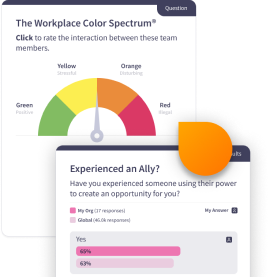
The Essentials of U.S. International Trade Laws and Regulations
A Message from Our CEO
Learn more about EmtrainCourse Description
This course serves as an introduction to US global trade laws and regulations. It aims to help learners understand what qualifies as an export and identify which government agencies regulate them. Your employees will review export control restrictions, red flags, and the roles and responsibilities of employees within your organization.Course Features
- Access to our Anonymous Ask the Expert tool
- Rich video scenarios based on real-world events
- Built-in employee sentiment surveys
- 50+ Machine Translation Options
- Optional program timer
- Policy acknowledgement tool
- Extensive customization options

Lessons
Regulating Global Trade
What is an Export?
Agencies that Control Exports
Common Risks and Red Flags
Roles, Responsibilities, and Our Policy
Provide Your Feedback
Relevant Courses
Complementary Microlessons
Recommended Resources
From ‘Ask the Expert’
Emtrain’s Ask the Expert feature enables users to ask questions about compliance, bias, harassment, and diversity & inclusion as they come up. It’s all confidential, and answers are sent straight to their inbox. View some of the example questions below and see the Experts answers.
Q
What is considered a red flag in international shipping or trade?
Thanks for asking. Red flags include vague shipping documents, unusual routing, customers reluctant to provide full details, or goods labeled in a way that doesn’t match their actual contents. These don’t always mean wrongdoing, but they’re signs to pause and verify.
Q
How do export control laws impact everyday business transactions?
Good question. Export controls can affect things as simple as emailing technical data, shipping parts abroad, or working with foreign vendors. Everyday transactions may need extra clearance if they involve restricted countries, people, or technologies.
Q
How do organizations stay compliant with rapidly changing global trade laws?
The best approach is to build a process, not just react. Companies use compliance software, maintain updated restricted party lists, and provide regular training. Having a clear reporting channel for employees also helps spot risks early.
Q
Why is accurate documentation so important in trade compliance?
Proper documentation proves that shipments meet legal requirements. Errors, even unintentional ones, can lead to delays, fines, or seizures. Accurate paperwork helps avoid suspicion and keeps trade flowing smoothly.
Q
What should I do if I discover a potential violation in a shipment?
Report it immediately to your compliance officer or manager. Don’t try to “fix” it on your own. Flagging the issue early allows the company to investigate and, if needed, make a voluntary disclosure — which can reduce penalties.

